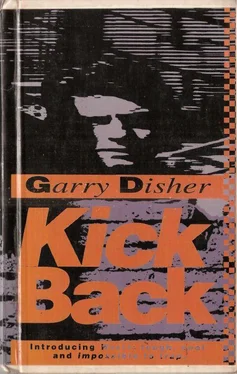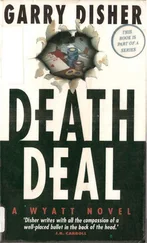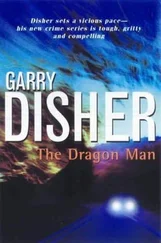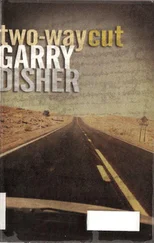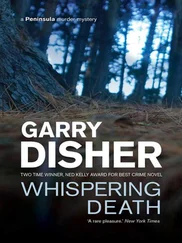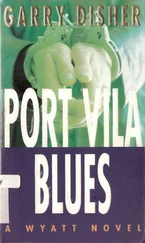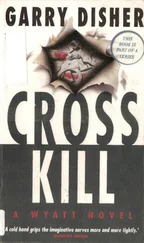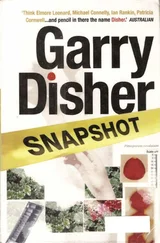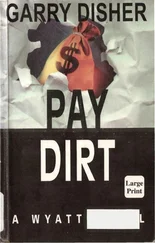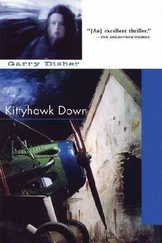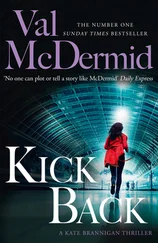Garry Disher - Kick Back
Здесь есть возможность читать онлайн «Garry Disher - Kick Back» весь текст электронной книги совершенно бесплатно (целиком полную версию без сокращений). В некоторых случаях можно слушать аудио, скачать через торрент в формате fb2 и присутствует краткое содержание. Жанр: Криминальный детектив, на английском языке. Описание произведения, (предисловие) а так же отзывы посетителей доступны на портале библиотеки ЛибКат.
- Название:Kick Back
- Автор:
- Жанр:
- Год:неизвестен
- ISBN:нет данных
- Рейтинг книги:3 / 5. Голосов: 1
-
Избранное:Добавить в избранное
- Отзывы:
-
Ваша оценка:
- 60
- 1
- 2
- 3
- 4
- 5
Kick Back: краткое содержание, описание и аннотация
Предлагаем к чтению аннотацию, описание, краткое содержание или предисловие (зависит от того, что написал сам автор книги «Kick Back»). Если вы не нашли необходимую информацию о книге — напишите в комментариях, мы постараемся отыскать её.
Kick Back — читать онлайн бесплатно полную книгу (весь текст) целиком
Ниже представлен текст книги, разбитый по страницам. Система сохранения места последней прочитанной страницы, позволяет с удобством читать онлайн бесплатно книгу «Kick Back», без необходимости каждый раз заново искать на чём Вы остановились. Поставьте закладку, и сможете в любой момент перейти на страницу, на которой закончили чтение.
Интервал:
Закладка:
Wyatt was early by almost two hours. He didn’t expect Sugarfoot to be that early. He walked down into the park, skirting a dense belt of trees, and entered a muddy track which meandered through weeping willows, mossy logs and clumps of onion weed. No respectable person ever ventured here. Shadowy, overcoated figures coupled, softly moaning, in the gloomy light. A pale-faced man stepped onto the track, saw Wyatt’s prohibitive face, and slipped away again. Here and there a solitary shape was hunched in miserable, tense-wristed pleasure.
Wyatt passed through the trees to open ground on the far side. Avoiding two Harley-Davidsons being tested on the Boulevard’s curves, he made his way back to the footbridge where Sugarfoot had suggested they meet. It occurred to him that the noisy bikes might provide Sugarfoot with sound cover.
He stood on the top end of the path leading to the footbridge. To the left were the trees, to the right grassy open ground with seats and swings.
No-one was around. Taking temporary shelter behind a peeling gum, he emptied the shopping bag and pulled his shabby gardening coat and trousers on above his normal clothes. He put a torn, stretched woollen cap on his head. The Browning was behind his right hip. It was a flat gun, resting comfortably above his right kidney in a forward-canted holster. Finally he took out a sherry bottle bagged in brown paper, and crossed to the swings.
One of the seats faced the slippery dip and the river. He slumped in it in an attitude of dejection and prepared to wait. Three o’clock, one hour early. Now and then he raised the sherry bottle to his lips but was otherwise perfectly still, his chin on his chest, the frayed cap concealing his face. He kept one hand under his coat, holding his Browning. He had a clear view of the footbridge. When Sugarfoot arrived to make his inspection, Wyatt would spot him immediately.
During the next hour, five people entered the park from the footbridge. The first two were a businessman and a teenager with wisps of orange and blue hair who disappeared into the trees a minute apart. Two joggers thumped across the bridge soon after that. They were followed by a wino, who homed in on Wyatt’s bottle. The wino shuffled past the seat twice before hovering nearby in a test of Wyatt’s sense of brotherhood.
About to tell him to scram, Wyatt thought better of it and inched along the seat to give the man room. ‘Sit down,’ he said. He raised the bottle. ‘This’ll warm your guts.’ The wino said Ta’ delicately and drank deeply from the bottle. ‘Ah,’ he said. He wiped the rim with his sleeve.
‘Have another,’ Wyatt said.
The man was ideal cover: so obviously derelict that he coloured Wyatt and the entire playground area. Sugarfoot would discount them immediately.
When it reached four-fifteen and Sugarfoot had not showed himself, Wyatt turned side-on in the seat. To an observer he appeared to be in animated conversation with his drinking mate, but he was looking beyond the bleary, whiskered face to the golf course, the bridge and the dense trees. Shadows were lengthening in the bad light of late afternoon, making objects difficult to assess. A misty rain began to fall and he hunched deeper into his coat. He stayed like this until four-thirty, but saw nothing. At quarter to five, he knew that it was a no-show.
‘Keep the bottle,’ he said, cutting the derelict off in mid-ramble about a shearing shed and a shearing record in 1954.
Hawking and spitting, Wyatt shuffled back across the golf course. He felt tense, wondering if Sugarfoot was smart after all, had support, had the cross-hairs of a telescopic sight on him all this time, waiting for a clear shot.
He kept his head down. Golfers swore at him. A golf ball bumped past him, someone yelled ‘Fore!’, another laughed.
Behind the clubhouse he stood at drunken attention and surveyed the parked cars. Some he remembered, others had arrived more recently. There was no two-tone Customline, but nor did he expect there to be. He was watching for warning signs: a man taking too long to find his car; a car circling the rows instead of leaving; a silhouette showing suddenly in a car window.
After a few minutes he wandered among the cars, looking for the one that didn’t belong. It was an empty gesture at best, since every car looked exactly like a family car used to cart golf clubs around.
He returned to the Hertz Falcon. Just before reaching it he dropped a handful of coins. They rang out, clear and metallic, on the hard asphalt. He knelt to recover them. He also swung round on the soles of his shoes, scouting for figures crouching behind nearby cars.
Nothing.
He checked the back seat and got behind the wheel. It was unlikely that the car had been wired, but still, he felt a prickle of fear as he turned the key in the ignition.
He drove to a secluded street and removed his coat, trousers and cap. They were damp, and had made his clothes underneath feel damp, but there was no time to do anything about that. Sugarfoot had not shown. He might have changed plans, had a fight with Ivan, sought help, decided on a different surprise.
Wyatt started the car again and drove to the Collingwood address Rossiter had given him. Time to go after Sugarfoot, not wait for him.
Thirty-eight
The big Customline was parked in the street. The road surface under it was bone-dry, indicating that it had been there for some time. The house itself looked to be vacant, an impression encouraged by the peeling window frames and verandah posts and the expensive renovation of the houses on either side of it.
Wyatt rapped the front door knocker. When there was no answer, he walked around to the back of the house. Out of habit he looked in the two sheds built against the back fence. One contained newspapers stacked for recycling, the other a workbench and a number of bicycle spare parts.
The back door key was under a bluestone block that supported a terracotta pot of herbs. Wyatt turned the key softly and let himself into the house. He stood, listening, for two minutes, then began a rapid search of the rooms on both floors.
He rejected the common living areas and two of the bedrooms-one because it clearly belonged to a womaer because he doubted that Surgarfoot subscribed to bush-walking magazines.
That left a elarge front room on the first floor. It was dimly lit, the air heavy with an atmosphere of cloaked obsessions. Among the pulp novels in the bookcase were sets of American handgun magazines and several large folios on weaponry from remainder bookshops. One shelf was crammed with war and western videos, heroes posed like gods on the covers. There was a small desk under the window. The drawers were locked. Against one wall was a large, gloomy wardrobe. It, too, was locked. Wyatt looked under the bed. He saw a padlocked chest but didn’t bother to drag it out or force the lock. He had a good idea what he’d find.
He went downstairs again. He locked the back door behind him, put the key under the bluestone block, and walked around to the front of the house.
A voice demanded, ‘Who are you?’
The woman had just come home. She had a sharp, unhappy face and stiff, chopped white hair. A badge on her overalls said, ‘Reduce, Reuse, Recycle.’ She glared at Wyatt. ‘What do you want?’
‘I’m after Sugarfoot. I did knock,’ Wyatt said, ‘then I went to see if he was around the back.’
‘Are you a friend of his?’
Wyatt watched her. She was hostile, but not towards him, so he said, ‘Not exactly. He owes me some money.’
Her lip curled. ‘That would be right. You could try his brother’s place. He said he was going there to pick up a bookshelf. But that was this morning.’ She fished in her pocket for the front door key. ‘If you see him,’ she said, ‘tell him to bring back my Kombi now, or I’m reporting it stolen.’ She slammed the door.
Читать дальшеИнтервал:
Закладка:
Похожие книги на «Kick Back»
Представляем Вашему вниманию похожие книги на «Kick Back» списком для выбора. Мы отобрали схожую по названию и смыслу литературу в надежде предоставить читателям больше вариантов отыскать новые, интересные, ещё непрочитанные произведения.
Обсуждение, отзывы о книге «Kick Back» и просто собственные мнения читателей. Оставьте ваши комментарии, напишите, что Вы думаете о произведении, его смысле или главных героях. Укажите что конкретно понравилось, а что нет, и почему Вы так считаете.
